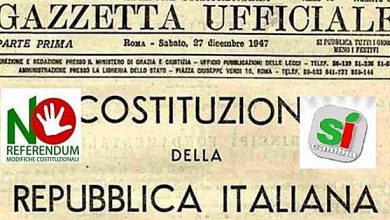
The medicines for pets have the same active ingredient and the same dosage as those for humans, but they also cost three times as much and vets are obliged to prescribe the more expensive ones
 Taking care of Fido or Micio risks becoming truly a luxury. This trend is confirmed by the fact that veterinary drugs often cost twice as much as for humans, for the same active ingredient. The market for medicines for dogs, cats, fish and birds in our country is worth almost 500 million euros.
Taking care of Fido or Micio risks becoming truly a luxury. This trend is confirmed by the fact that veterinary drugs often cost twice as much as for humans, for the same active ingredient. The market for medicines for dogs, cats, fish and birds in our country is worth almost 500 million euros.
Between treatments and medicines, animals cost us an average of one hundred euros a year, but a third of Italian owners pay at least two or three times as much. Furthermore, for veterinary products there is no coverage by the National Health System: the cost is entirely borne by the owner. If we add to this the fact that generic veterinary surgeons are a rarity, it is clear that pet care represents a very high cost for families. For example, Metoclopramide (promotes intestinal motility and counteracts vomiting) in human medicine is available as Plasil and costs €1.89 per box; in veterinary medicine it is known as Vomend and costs 19 euros per pack.
Prohibition by law
But the cases are numerous and the Italian union of veterinarians, Sivelp, has created a site, pharmacoveterinario.itwhere you can compare drug prices. The only saving opportunity, in reality little known, remains the possibility of tax deduction of veterinary expenses upon presentation of the receipt with the tax code (as occurs for human drugs). “Veterinarians, faced with this situation, are practically powerless – comments Alberto Bernava, president of the Order of Veterinarians of Udine -: it is the law to require us not to prescribe medicines for human use to 'animal patients' when veterinary therapies with the same indications are available. The same goes for the drugs we buy ourselves, such as anesthetics for surgery. Furthermore, VAT must be charged to 22% on the fees for our visits”.
Ideas to save
 “It would be appropriate to allow the veterinarian to be able to prescribe a similar drug for humans – wrote the regional councilor of Responsible Autonomy, Giuseppe Sibau in the question with which he asked the Giunta for an intervention at the Ministry of Health -. A simple regulatory change would be enough to allow veterinarians to prescribe generic medicines for pets as well. Furthermore, since the State is the largest owner of dogs (there are 600,000 in kennels in the peninsula) it would also be convenient for the public coffers to give the go-ahead for generics for animal use”.
“It would be appropriate to allow the veterinarian to be able to prescribe a similar drug for humans – wrote the regional councilor of Responsible Autonomy, Giuseppe Sibau in the question with which he asked the Giunta for an intervention at the Ministry of Health -. A simple regulatory change would be enough to allow veterinarians to prescribe generic medicines for pets as well. Furthermore, since the State is the largest owner of dogs (there are 600,000 in kennels in the peninsula) it would also be convenient for the public coffers to give the go-ahead for generics for animal use”.
Meanwhile theEnpa threw one petition to ask the Minister of Health to make the medical prescription of the active ingredient mandatory, rather than the brand name of the medicine, also for medicines intended for animal use while the Ministry is taking action to adhere to the proposal for a Regulation of the European Parliament and of the relative Council to veterinary medicinal products which will be discussed in Brussels.
Examples: antiepileptic therapy with phenobarbital goes from 5 euros for the human version to 40 for the veterinary one. The same happens with ranitidine (gastroprotector for ulcers) - from 8.59 to 16 euros - and with cephalosporins (a powerful bactericide) whose price rises from 3.9 to 27.5 euros. Naturally, these are costs relating to the single package and not to the entire duration of the therapy, which for a middle-income family can become unsustainable if it were to be extended over time or even for the entire life of the pet.
Related news: Cirinna' (pd): "antitrust opens an investigation into the disproportion of animal drugs and human drugs"
In the past few weeks, Mr Cirinnà has asked the antitrust to open an investigation into the price disproportion between human and veterinary medicines. «Clear speculation is underway - said the PD senator - given that these are the same active ingredients. I join the request of my colleague Michele Anzaldi to ask the authorities for an investigation".





